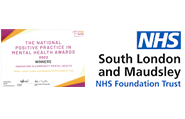Unusual experiences
This section features general information about unusual experiences. By "unusual experiences" we mean experiences like hearing voices or having strongly held beliefs that other people don't share.
You can learn more about types of unusual experiences by visiting that page.
These experiences often begin in our teenage years, but can also sometimes start in childhood or in adult life. Some people only have one type of unusual experience, while others may have various different ones. Some people have unusual experiences every now and again, and for others they are ongoing.
What people think of these experiences also varies. Some people find them interesting or pleasant, others find them frightening or upsetting. For many people unusual experiences get worse during times of stress, or when using substances like cannabis.
Visit our making sense page to learn more about how people commonly understand their unusual experiences.
How common are unusual experiences?
Unusual experiences are more common than you might think. Research shows that about 1 in 10 adults have unusual experiences of some kind. Even more people have one-off unusual experiences like hearing their name being called or feeling like someone is watching them. Three in four people experience this at some point in their lives! This tells us that unusual experiences can be a normal part of human experience and are not always signs of a mental health problem.
However, about 1 in 25 adults have unusual experiences that get in the way of their lives and cause them distress. When this happens, it makes sense to access help.
What is the impact of unusual experiences?
For some people, unusual experiences can be positive. They might see them as helpful or as opportunities for personal or spiritual growth. For example, a person might find that their voices are comforting and provide company.
For other people, unusual experiences can be confusing and upsetting. They might make us feel low or anxious, interfere with day to day activities, or affect social relationships. They can make work and study more difficult, or make it harder for people to look after themselves.
If unusual experiences are upsetting you, or interfering with your day to day life, seeking professional support can be really important.
Some people who have unusual experiences never go on to have mental health problems. For others, unusual experiences can increase the risk of a mental health problem. This is called an ‘at-risk mental state’. Lots of people struggle with anxiety or low mood alongside these unusual experiences, and in OASIS we provide specialist support to people who are finding it hard to cope.
Why is this happening?
We don't know exactly why people have unusual experiences, and there are lots of different theories.
Research has found that many factors can increase the chances that someone has distressing unusual experiences. The contributing factors can be social, psychological and biological, and there is no one single cause.
- Social factors: traumatic experiences, social isolation, financial problems, bullying, bereavement, and victimisation
- Psychological factors: stress, anxiety, low mood, worry, negative beliefs about ourselves or others, and unhelpful coping strategies
- Biological factors: genes, head injury, lack of sleep and substance use
Most people find that there are many different causes for their mental health problems. But, notice that lots of the factors listed above can be overcome. That's what getting professional support can help you to do.







